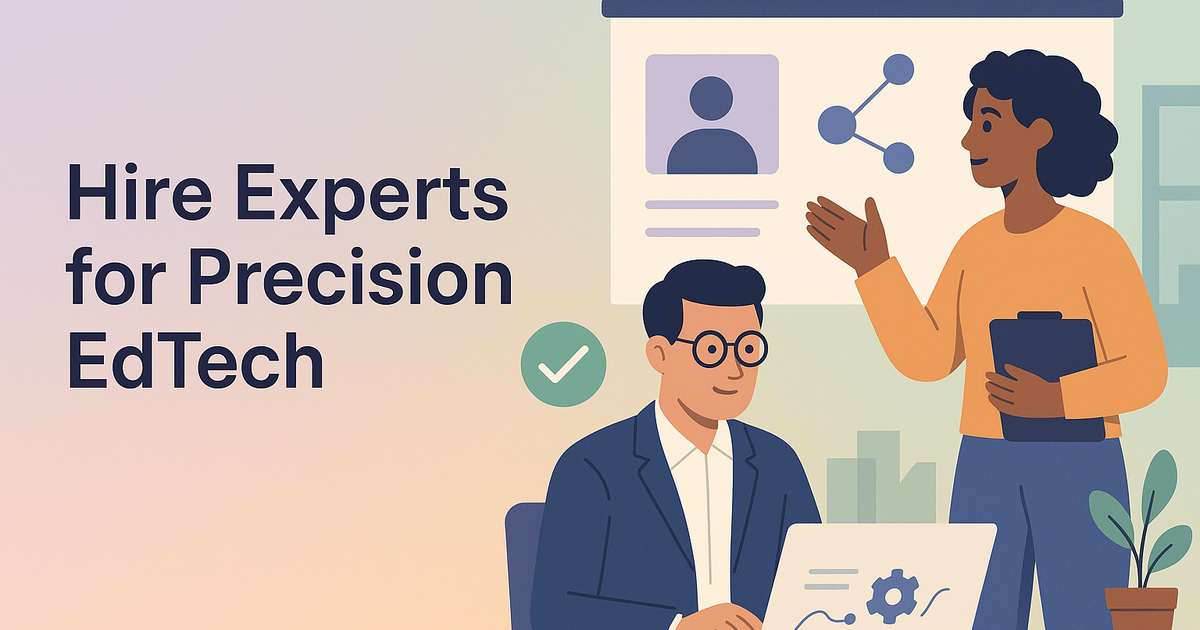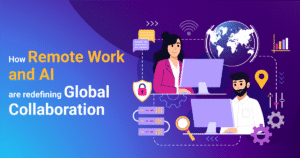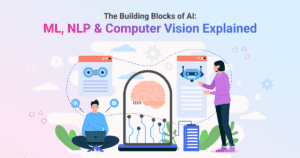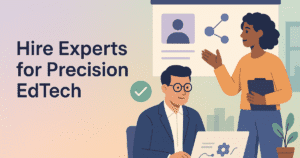AI and the Future of Education: Powering Personalized Learning with Verified Talent


Most CTOs assume that stocking up on AI tools automatically delivers personalized learning. The hidden reality is starker: without verified specialists who understand both machine learning and pedagogy, those shiny licenses turn into shelf-ware. Budgets leak, pilots stall, and classrooms wait while hiring cycles drag on. Behind the scenes, missed product deadlines erode market share and burn out already-thin engineering teams. Yet there is a repeatable path one that replaces guesswork with a rigorously vetted talent pipeline capable of turning adaptive learning from vision to deployed feature set. In the next few minutes, you’ll see exactly how to close this gap.
Most education leaders blame slow progress in AI in education on a “talent shortage.” The issue is subtler: an inability to verify who can actually deliver adaptive learning algorithms that work in live AI classrooms.
To meet aggressive timelines, AI in education initiatives need a hiring model purpose-built for edtech. The Precision Pedagogy Talent Framework aligns technical depth with learning science outcomes.
Start by reverse-engineering product goals (e.g., adaptive learning paths) into specific competencies such as reinforcement learning, learning analytics, and assessment theory.
Pair an AI architect with an instructional designer during interviews. The combination uncovers whether a developer can translate model outputs into actionable learning interventions.
Finalists prototype a micro-feature say, an adaptive quiz under time constraints. Stakeholders gauge both coding rigor and educator empathy.
Platforms like Expertshub.ai embed all four pillars into a single 5-stage vetting flow, so CTOs receive only pre-vetted AI experts ready to build education technology that sticks.
This section stays tool-agnostic to illustrate how the right expertise transforms theory into tangible learner gains.
Once pilot metrics validate, containerize micro-services so additional courses can reuse common personalization engines reducing maintenance load on small engineering teams.
When verified specialists build the core, personalized learning moves from experimental feature to platform capability.
Pre-vetted experts slot into sprint planning immediately, shrinking the gap between curriculum idea and live feature.
A clarified talent pipeline converts unknown hiring delays into forecastable onboarding timelines, supporting CFO-friendly roadmaps.
With adaptive learning expertise on tap, your organization can pilot AI classrooms in new subjects without overextending full-time headcount. Expertshub.ai clients report smoother pivots because the same vetted network scales up or down as demand shifts.
Q1: How is this different from standard technical interviewing?
A: Standard interviews validate code syntax; Precision Pedagogy validation proves a candidate can translate algorithms into learner outcomes.
Q2: Can’t we train existing engineers instead?
A: Upskilling helps, but personalized learning requires nuanced pedagogy knowledge that typically takes years to acquire. Mixing in specialists accelerates delivery.
Q3: What roles are most critical to start?
A: Data scientists with assessment analytics expertise, ML engineers focused on reinforcement learning, and product managers versed in curriculum alignment.
Book a Discovery Call to access pre-vetted AI education talent and launch personalized learning features in weeks, not quarters.


